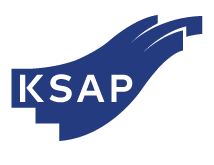The training programme and its organisation

Dual-path training continues through a total of 17 week-long modules of training classes. Participants basically gather together at KSAP for one week in each month through their time as Students.
Students on dual-path training go on a four-week foreign internship.
Form of training
- The training modules comprise classes that form a cohesive whole in terms of their subject matter, with information as regards both law and administration, in combination with economic, management-related, sociological, psychological and international-relations matters, as all seen in connection with the practical skills combining together in the process of strategic management.
- Modules are made ready by teams of experts that include practitioners with many years of experience in administration and business. These people work closely together to achieve a cohesive whole. Each module has a single expert in charge of it, whose task is to coordinate programme content.
- Classes are run in such a way as to be activating, e.g. through workshop or project work that in particular draws on case studies from the world of administration relatable to or finding reflection in Students’ experiences.
- Students learn in advance of each successive module, also receiving the materials that will allow them to prepare optimally.
- To ensure a matched level of knowledge in classes, some modules can be preceded by e-learning that allows for the checking (and possible augmentation) of what is known in the given area.
- Students ”pass” the different modules – or the component classes – in a manner that fits with the given topic – for example taking the form of an individual or group project, a presentation, a test, or a piece of written work. And not all modules need to be passed in this way.
- Each Year Class has a leading theme assigned to it, which should make reference to the current situation as regards society, the economy or policy; and which is analysed in detail during classes addressing the way in which administration works from a variety of different perspectives.
Further integral parts of the programme of dual-path training are:
-
the teaching of a foreign language
- perfecting their knowledge and in-practice use of a foreign language in public administration, dual-path Students have classes in English, German or French of 4 teaching hours’ duration in weeks at School, and 2 clock-hours per week between times;
-
a programme of mentoring
- a unique aspect, honouring the preferences of the Student and being pursued either with a mentor (experienced civil servant) or a certified coach cooperating with KSAP;
-
a foreign internship
- allowing for the acquisition of experience when it comes to work in an international environment, with new modi operandi, ideas and solutions present in other countries’ administrations encountered over 4 weeks with a Europe-based public-administration or EU institution, or seat of an international organisation; and with costs covered by KSAP by virtue of rules laid down in the relevant Regulation of the Prime Minister;
-
topic-related workshops
- amounting to several months of work, these see students divided into groups under expert supervisors, in order for them to research into and analyse selected issues linked intimately with the functioning of public administration, with an analytical report with recommendations ultimately being made ready to conclude the work;
-
an Individual Programme of Development
- allowing the Student to take part in 3 days of training from among the courses in the KSAP Offer (at times other than those of the main gatherings for training at KSAP).
Subject matter
The Programme of dual-path training will inter alia encompass:
- the identity and ethos of the public service
- the state and society
- the state and the market
- administration and public policy
- Poland in the world – international policy and participation in international organisations
- strategic planning
- innovation in public administration
- the management of public finances
- conflict resolution and communication in time of crisis
- people management and team management
- techniques and methods of effective management and decision-making




















